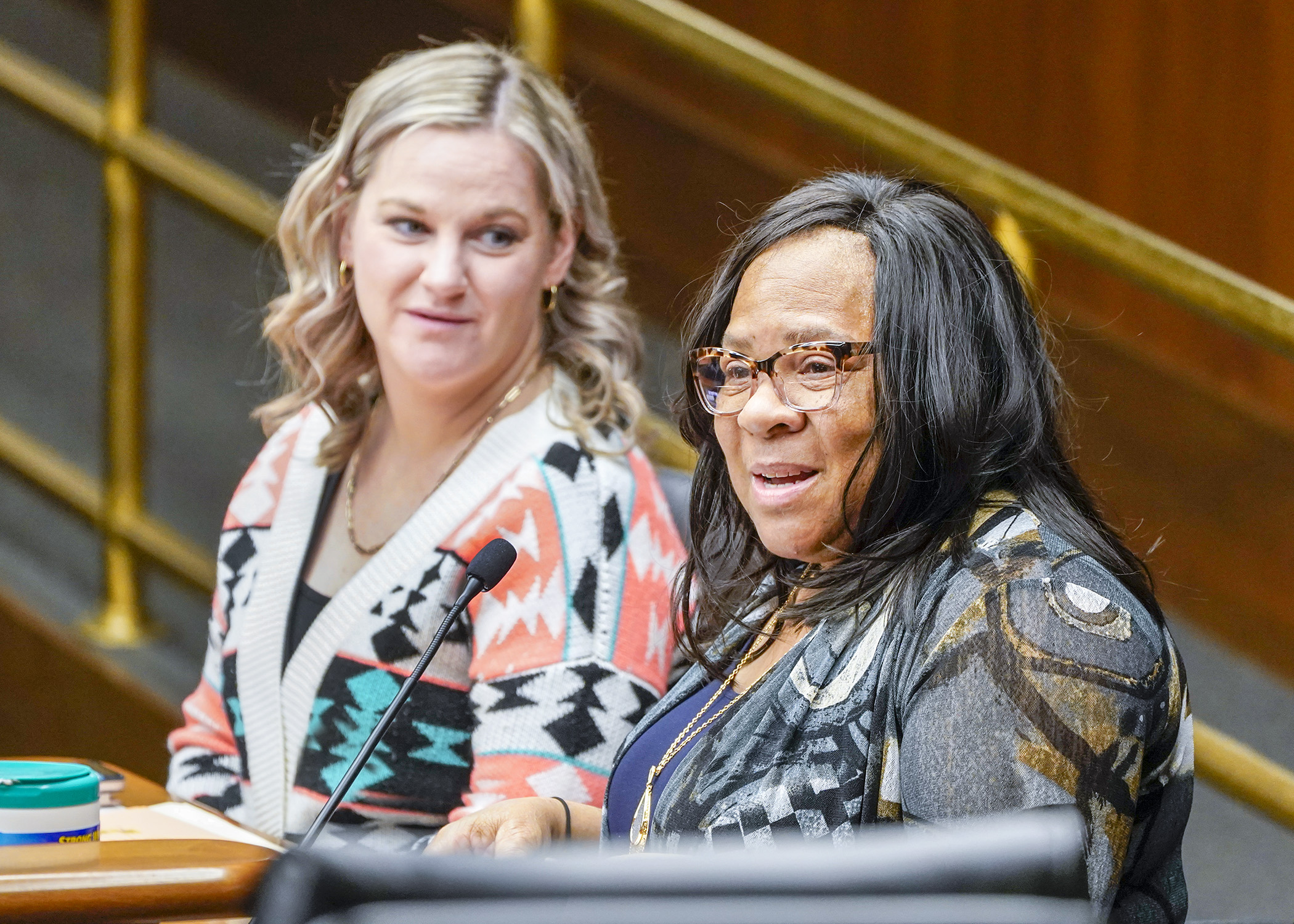Ride the rails from Minneapolis to Duluth? House panel considers $194 million for Northern Lights Express

Supporters of the Northern Lights Express painted pictures of the potential new rail service riders: veterans traveling south for treatment at the VA hospital, tourists headed to Grand Casino Hinckley, older adults who want to attend a play at the Guthrie, a driver avoiding a white-knuckle February trip on a snowy highway, out-of-state visitors planning a week’s vacation on the shores of Lake Superior.
All achievable for about $30 per ticket and no more than a 2 ½ hour train ride with internet included.
Rep. Erin Koegel (DFL-Spring Lake Park) aims to make those visions a reality with state funding for the Northern Lights Express – an Amtrak-operated passenger rail service between downtown Minneapolis and Duluth with stops in Coon Rapids, Cambridge, Hinckley and Superior, Wis.
Her bill, HF409, would appropriate $194.3 million for the Northern Lights Express. It was laid over as amended Friday by the House Transportation Finance and Policy Committee for possible omnibus bill inclusion.
The funding would include $109 million for core capital costs, $76.3 million for rolling stock and $9 million for a joint station in Coon Rapids that could serve the Northern Lights Express and the Empire Builder that travels between Chicago and Seattle.
Funds would be used to improve existing freight rail lines to handle higher speed passenger trains. This would include track, signal and railroad crossing improvements; upgrades at bridge crossings; and expansion, renovation or new construction of stations on the route.
This is the right time for the Northern Lights Express, say project supporters, with $66 billion in federal dollars earmarked for intercity passenger trains included in the bipartisan Infrastructure Investment and Jobs Act. The estimated federal share to build the Northern Lights Express is $779.2 million.
City, county and tribal officials along the route touted potential economic and environmental benefits. Per the Northern Lights Express Alliance, benefits over the next few decades would include:
- 130 fewer crashes at grade crossing;
- more than $375 million growth in tax revenues;
- $400 million growth in tourism; and
- emissions savings and CO2 reductions of $50 million.
But Republicans are skeptical the project will come to fruition – at least at the current price.
Rep. Shane Hudella (R-Hastings) said it reminds him of the Southwest Light Rail build that has been plagued by years-long delays and extreme cost overruns.
Rep. John Petersburg (R-Waseca) isn’t confident in ridership projections and worries the state would be on the hook to subsidize operating costs. “If we don’t do something to start curtailing these expenses we’re eventually going to run out of money,” he said.
Several members argued that car travel is also subsidized. Half the money that pays for roads and bridges come from property taxes, said Rep. Steve Elkins (DFL-Bloomington).
Related Articles
Search Session Daily
Advanced Search OptionsPriority Dailies
Speaker Emerita Melissa Hortman, husband killed in attack
By HPIS Staff House Speaker Emerita Melissa Hortman (DFL-Brooklyn Park) and her husband, Mark, were fatally shot in their home early Saturday morning.
Gov. Tim Walz announced the news dur...
House Speaker Emerita Melissa Hortman (DFL-Brooklyn Park) and her husband, Mark, were fatally shot in their home early Saturday morning.
Gov. Tim Walz announced the news dur...
Lawmakers deliver budget bills to governor's desk in one-day special session
By Mike Cook About that talk of needing all 21 hours left in a legislative day to complete a special session?
House members were more than up to the challenge Monday. Beginning at 10 a.m...
About that talk of needing all 21 hours left in a legislative day to complete a special session?
House members were more than up to the challenge Monday. Beginning at 10 a.m...